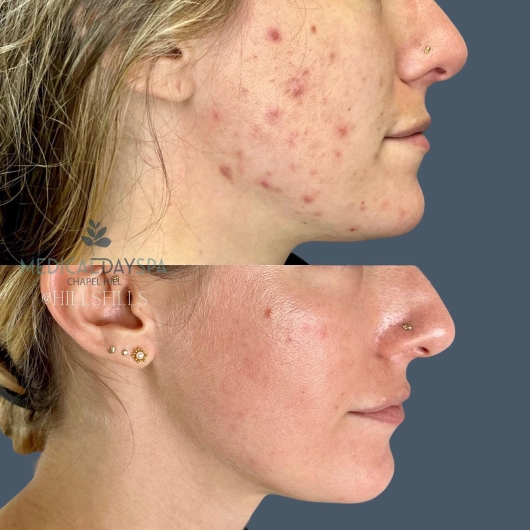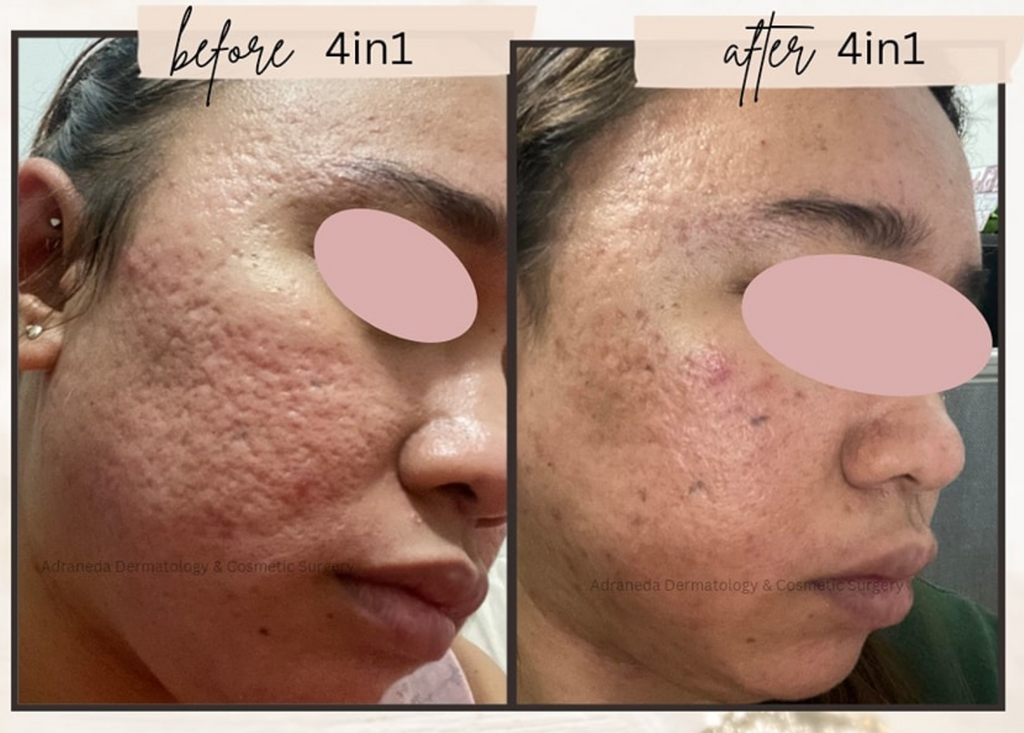Sensitive Skin? Locate the Right Acne Scars Treatment for Your Demands
The Effect of Skin Problem on Confidence: Reliable Approaches for Dealing With Acne Scars
Skin problems, especially acne, can profoundly influence an individual's self-esteem, commonly producing obstacles to social communications and personal expression. Recognizing exactly how these strategies can cultivate self-confidence may expose crucial insights right into alternative care strategies that empower individuals to accept their skin and boost their general quality of life.
Emotional Impacts of Acne
Acne, a prevalent skin problem impacting millions worldwide, can have extensive mental effects on people. The visible nature of acne typically results in significant psychological distress, consisting of feelings of embarrassment, reduced self-esteem, and social withdrawal. Lots of individuals with acne might experience anxiousness, especially in social situations, where they are afraid judgment or negative understandings based upon their skin disease.
Study suggests that the emotional impact of acne can be as devastating as the physical symptoms, adding to depression and body dysmorphic disorders in some instances. Adolescents, that are often a lot more conscious peer opinions, may be specifically at risk, resulting in destructive impacts on their social communications and academic performance.
Additionally, the preconception connected with acne can exacerbate feelings of isolation, as individuals may view themselves as less appealing or socially appropriate. This psychological burden can impede personal partnerships and total quality of life. Thus, it is important for medical care providers to resolve both the emotional and physical aspects of acne, providing detailed assistance that consists of therapy and instructional sources to help individuals manage their condition effectively.
Comprehending Acne Scars
Handling the after-effects of acne commonly entails challenging the marks it leaves, which can be a considerable source of aggravation and psychological distress for lots of people. Acne scars can show up in various types, largely classified into atrophic, hypertrophic, and keloid marks. Atrophic scars are characterized by a loss of tissue, causing clinical depressions in the skin, while hypertrophic marks entail elevated cells that establishes in response to swelling. Keloid marks, a much more severe form, expand past the original site of injury, offering an unique challenge for therapy.
The formation of acne scars is affected by elements such as the extent of acne, the period of inflammation, and specific healing responses. Skin kind and genetics also play critical functions in scar growth. Comprehending the biological devices behind scar development assists in addressing the psychological effects, as individuals may view their marks as irreversible pens of a previous battle. This understanding works as the structure for discovering reliable therapy strategies, encouraging people to take control of their skin issues and their self-worth. Recognizing the kinds and causes of acne scars is essential in browsing the path towards effective options.
Topical Therapy Options
While various treatment methods exist for addressing acne scars, topical choices are commonly the initial line of protection for individuals seeking to enhance their skin's look - acne scars treatment. These therapies can be reliable in decreasing the exposure of marks and advertising total skin wellness
Usual topical representatives include retinoids, which improve cell turnover and encourage the regeneration of skin cells, thus improving texture and tone. Additionally, alpha hydroxy acids (AHAs) and beta hydroxy acids (BHAs) exfoliate the skin, removing dead skin cells and promoting a smoother surface.

Non-prescription items including ingredients like niacinamide and licorice remove may also help in decreasing inflammation and staining (acne scars). It is essential for individuals to speak with a skin specialist to identify one of the most proper topical treatments customized to their unique skin kind and scar attributes, making best use of the capacity for reliable results
Advanced Dermatological Treatments
For individuals looking for more instant and substantial improvement in the look of acne marks, advanced skin-related procedures use an array of effective alternatives. These Continued treatments are developed to target much deeper skin layers, fostering considerable skin regrowth and makeover.
One prominent technique is laser treatment, which makes use of focused light to resurface the skin and decrease the look of marks. Fractional laser treatments, particularly, are reliable as they advertise healing while targeting certain locations, minimizing downtime. Chemical peels, which include the application of acidic remedies, can also be useful by scrubing the skin and advertising new cell growth.
Microneedling is one more cutting-edge alternative, involving making use of fine needles to produce micro-injuries that boost collagen manufacturing. This treatment boosts skin structure and reduces the exposure of marks over time. Furthermore, dermal fillers may be used to elevate clinically depressed marks, supplying prompt quantity and smoothing the skin's surface area.

Building Self-confidence With Treatment
When individuals focus on self-care and accept effective therapies for acne scars,Self-confidence frequently flourishes. The trip toward enhanced skin is not exclusively concerning aesthetic outcomes; it likewise significantly affects emotional wellness (acne scars treatment). Individuals that actively take part in their skincare routines typically experience an increase in self-confidence, as they see substantial improvements in their skin's look
Developing an individualized skincare routine that consists of both topical therapies and professional treatments is important. go right here Normal cleaning, exfoliation, and moisturization can assist keep healthy and balanced skin, while procedures such as chemical peels or laser therapy might provide much more significant outcomes. Beyond physical treatments, taking on a holistic technique that includes healthy and balanced lifestyle options-- such as well balanced nourishment, hydration, and stress and anxiety management-- can even more improve skin wellness and self-confidence.
Furthermore, support from dermatological experts can encourage individuals to browse their treatment choices successfully. Sharing experiences with others encountering comparable obstacles can cultivate a feeling of area and resilience. Ultimately, building confidence with treatment includes a complex technique that focuses on both skin health and wellness and psychological support, causing a renewed sense of self-worth and personal fulfillment.
Verdict
Acne and its resultant scars can profoundly affect a person's self-worth and social communications. Reliable treatment techniques, encompassing topical treatments and progressed skin-related procedures, play a vital function in dealing with these issues. The implementation of an individualized skin care routine and engagement in self-care methods contribute to general confidence enhancement. Support from experts and area sources further enhances psychological resilience. Inevitably, resolving both the mental and physical aspects of acne scars is important for cultivating positive self-image and well-being.
Skin problems, especially acne, can exceptionally affect an individual's self-worth, usually creating barriers to social interactions and personal expression. Atrophic scars are defined by a loss of cells, resulting in clinical depressions in the skin, while hypertrophic marks entail raised tissue that creates in response to inflammation. Skin kind and genetics likewise play critical roles in scar advancement.One prominent strategy is laser therapy, which uses focused light to resurface the skin and minimize the look of marks. Furthermore, facial fillers may be used to raise clinically depressed marks, providing immediate volume and smoothing the skin's surface.